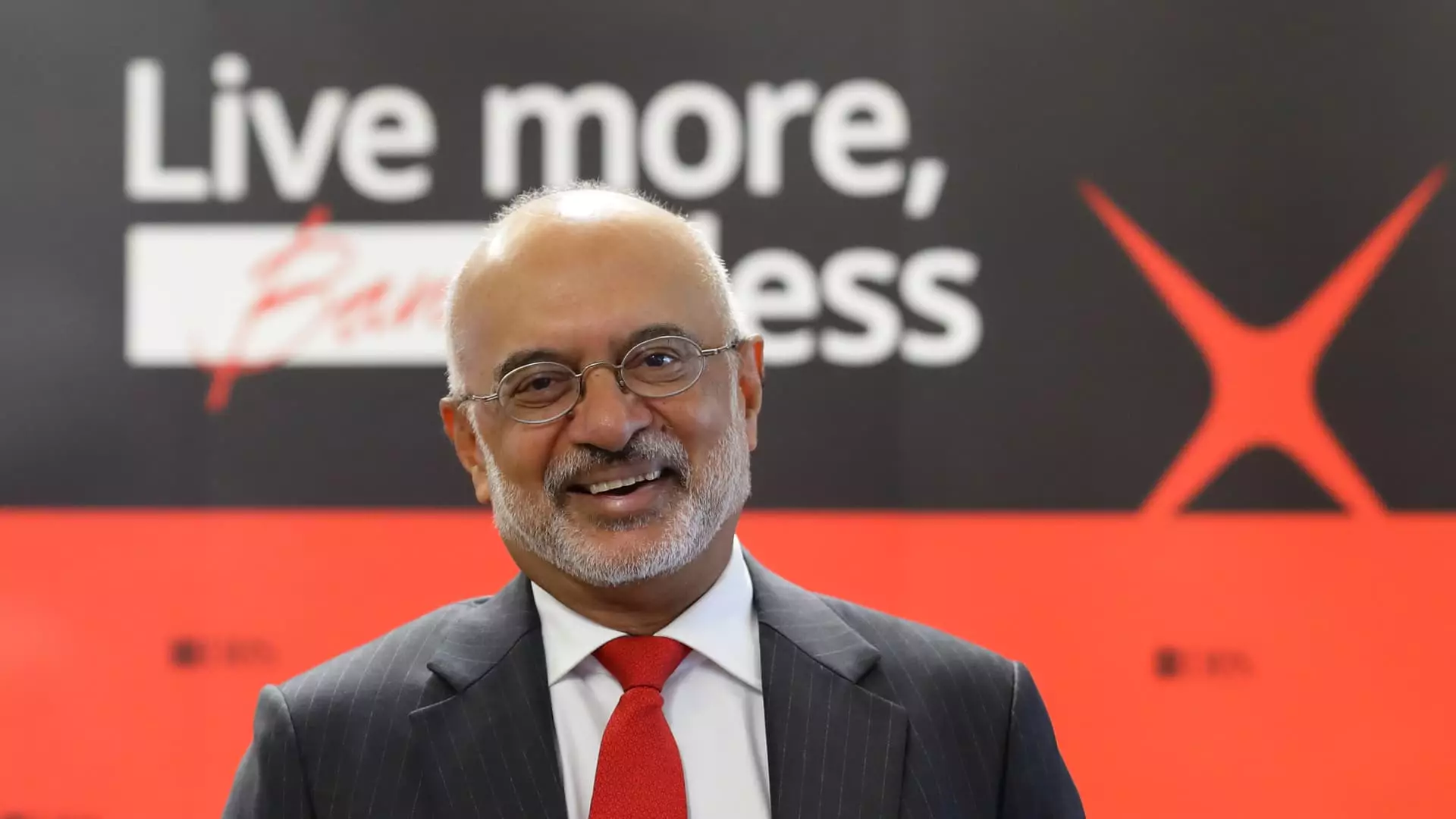DBS Bank, Singapore’s largest bank, capped off a remarkable financial year in 2024 with record net profits, showcasing its resilience and strong performance. Under the leadership of CEO Piyush Gupta, the bank reported a net profit of 11.4 billion Singapore dollars (approximately 8.4 billion USD), reflecting an impressive 11% growth compared to the previous year. Revenue also experienced a substantial uplift, climbing to 22.3 billion SGD, a 10% increase. Such results not only highlight the effectiveness of DBS’s business strategies but also the importance of a robust financial foundation in an evolving economic landscape.
This progress, however, comes intertwined with caution. Gupta spoke openly about the uncertainty that looms over the financial market, particularly regarding the evolving economic policies originating from the United States. Such policies, especially those propelled by the Trump administration, may influence global tariffs, tax strategies, and ultimately the competitive landscape within which DBS operates. This acknowledgement of external risks reflects a thoughtful approach to corporate governance, ensuring that the bank remains agile in addressing challenges as they arise.
Strategic Response to Economic Instability
Gupta’s assertions underline the need for agility and adaptability as DBS prepares for the unpredictable tides of 2025. Eric’s insights emphasize that while the bank celebrates its recent successes, it must remain vigilant and responsive to external shifts in economic policy that could disrupt its trajectory. The possibility of tariffs or changes in tax regimes could directly impact the bank’s operational viability and performance.
Amid these uncertainties, DBS reported significant contributors to its financial health, including record fees and increased treasury sales. Notably, net interest income also rose by 5%, reaching approximately 15.04 billion SGD. This increase is particularly commendable given the fluctuating interest rates determined by external factors such as U.S. Federal Reserve policies. Despite previous forecasts predicting up to four potential rate cuts in 2025, DBS has revised expectations to two, demonstrating a proactive adjustment to market realities. This reflects an intricate understanding of interest rate dynamics, a crucial element given the bank’s emphasis on net interest income as a key revenue stream.
In light of these robust financial results, DBS has taken a decisive step to reward its shareholders. The bank proposed a final dividend of 60 cents per share for the fourth quarter, an increase from the previous payout, which culminates in a total annual dividend of 2.22 SGD per share — marking a 27% rise year-on-year. Additionally, Gupta announced the introduction of a “capital return” dividend mechanism, allowing for 15 cents per share distribution each quarter throughout 2025. This move not only strengthens shareholder trust but underscores DBS’s commitment to judiciously managing its capital resources.
Furthermore, the bank’s capital adequacy being at 17%, well above its operating range of 13%, indicates a healthy buffer to navigate any potential economic turbulence. Gupta’s promise to return excess capital to shareholders in the coming years highlights an understanding of stakeholder expectations in conjunction with prudent financial management.
As DBS transitions into 2025, it also marks a significant change in leadership. Gupta’s announcement that he will step down as CEO on March 28, handing the role to deputy CEO Tan Su Shan, represents not only a change in personnel but also a continuity of strategic vision. Gupta’s tenure saw the bank navigate through various financial storms, and his tenure’s ending presents an opportunity for renewed perspective and leadership strategies.
As DBS Bank ventures into this new chapter, it faces a dual challenge: to leverage its impressive financial results while remaining adaptive in the face of unpredictable market dynamics. With the foundation set by Gupta’s leadership, the bank seems well-positioned to embrace both continuity and change in the pursuit of sustained growth. The coming year will be critical to gauge how effectively DBS balances these priorities amidst a rapidly evolving financial landscape.

